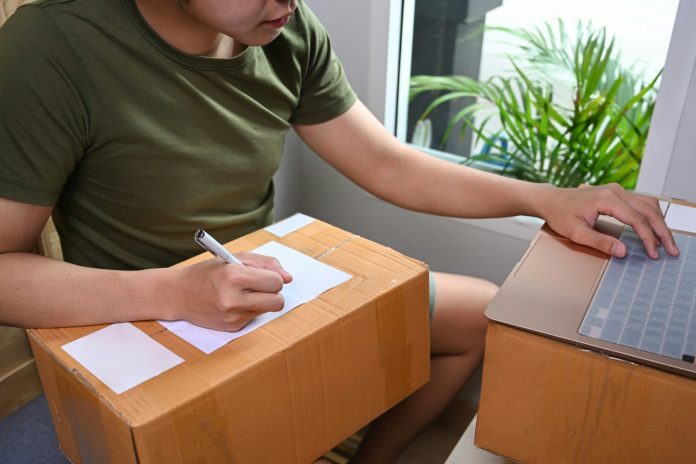Sending a parcel to France can be a straightforward process, but failing to follow the rules and requirements can lead to delays, additional costs, or even legal trouble. Whether you’re sending a gift to a loved one or shipping packages for your business, understanding French customs regulations, documentation, and shipping restrictions is vital to ensure smooth transit.
Navigating French Customs Regulations
When you send a parcel to France, it must pass through French customs. Customs regulations are in place to ensure that incoming goods comply with local laws and policies. Here’s what you need to know about dealing with customs in France.
Taxes and Fees When You Send Parcel to France
When you send parcel to France, be aware that VAT and import duties may apply. France charges these taxes based on the value and type of goods you’re sending.
Parcels under €150 are usually exempt from import duties, but VAT may still apply. Couriers may also add customs handling fees.
To avoid extra costs or delays, calculate any charges in advance before shipping.
Prohibited and Restricted Goods
Before you send parcel to France, check what’s allowed. French customs ban certain items, including counterfeit goods, illegal substances, and endangered species.
There are also restrictions on alcohol, food, and electronics. Always review the latest rules on the French Customs website or with your courier to avoid delays or fines.
Documentation Requirements
When you send a parcel to France, it’s very important to include the correct paperwork.
Customs Declarations and Legal Paperwork
Every time you send a parcel to France, you need to fill out a customs form (CN22 or CN23) based on the value and what’s inside. If the form is missing or wrong, your parcel could be delayed, fined, or taken by customs.
Invoice or Packing List
If you send a parcel to France for business, you’ll need to include an invoice or detailed packing list. This should clearly show the item description, quantity, and value.
Accurate paperwork helps customs assess taxes or duties and avoids delays during delivery.
Additional Documents for Specific Items
If your shipment includes restricted items, such as electronics or medications, you may need to provide additional permits, licenses, or certifications. Check with French customs or a trusted shipping partner to confirm any extra requirements.
Packaging and Labeling Guidelines
Using proper packaging and clear labeling helps make sure your parcel arrives safely and without delays.
Secure and Professional Packaging
Choose a sturdy box that is appropriate for the content weight and size. Use sufficient padding materials like bubble wrap or packing peanuts to prevent goods from shifting or breaking. For fragile items, clearly mark the outside of the package with “FRAGILE” labels.
Accurate and Clear Labeling
Always include the recipient’s full name, full address, and a valid contact number on the label when you send parcel to France. Some couriers may also need barcodes or tracking numbers.
Mistakes in labeling can result in parcels getting delayed, lost, or even returned to the sender.
Know the Restrictions Before You Send Parcel to France
Some items are banned, while others are restricted and must meet certain rules. Before you send parcel to France, check the most common restrictions to avoid issues at customs.
Food Items
If you’re sending food, ensure it is non-perishable, commercially packaged, and labeled clearly. Many homemade or fresh food items are restricted due to strict sanitary regulations.
Alcohol and Tobacco
You can send alcohol and tobacco to France, but there are strict rules and taxes. These items must be declared, and you’ll need to pay duties and VAT.
Not all couriers ship these products, so check with your carrier before sending.
Medications and Supplements
When you send medication or supplements to France, include a prescription or medical certificate to prove they are for legal use. Over-the-counter drugs may also have restrictions, so check the rules beforehand.
Choosing the Best Shipping Options
Picking the right courier is just as important as knowing the customs rules when you send parcel to France. The options you choose can affect delivery rates, times, and tracking reliability.
Courier Services
DHL, FedEx, and UPS provide quick and reliable delivery with parcel tracking options. These services are perfect for valuable or time-sensitive shipments, though they may be more expensive.
Affordable Ways to Send Parcel to France
For cheaper shipping, use your local postal service or international partners like USPS and La Poste. These are ideal for low-value or non-urgent parcels, but may offer limited tracking compared to private couriers.
Factors to Consider
When choosing a shipping option, weigh factors like cost, delivery time, package tracking, and customer support availability. Certain couriers offer customs support, making it easier and faster to send parcel to France.
Seamless Shipping with Compliance
Sending a parcel to France may seem complex, but understanding the rules and following proper procedures ensures smooth delivery every time.
Stay informed and follow the right steps to send your parcel to France safely and on time—no delays, no stress.
Happy shipping!

